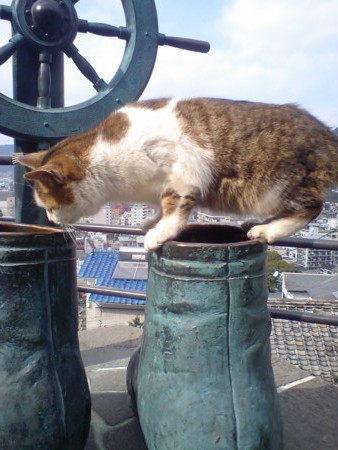本メルマガ創刊日は2005年1月21日でして、先日無事
4周年を迎えることができました。
誰もほめてくれないので自分で
(。^〇^。)//パチパチ (。^〇^。)//パチパチ
最初はこんな感じでした。
続きまして、無料発音セミナーのお知らせです。
プロンテスト社の奥村真知先生からどなたでもわかる英語
の発音をよくする練習方法をご教示頂けます。
日時 1月28日(木)18:30~20:45
場所 神保町ELEC英語研修所
無料 定員40名
最後に、今年もやってまいりました。リスナーの集いのお知らせです。
日時:2010年4月17日(土) 17:30~20:00(17:00受付開始)
場所:日本外国特派員協会 http://www.fccj.or.jp/
会費:1人 9,000円
定員:120名
ご案内
申し込みはこちらから
http://www.ethospathoslogos.com/talkshow/index.html
杉田先生詣でに今年も集まりましょう。

■NHKラジオ 実践ビジネス英語 High-Tech Parenting (1) 1/20 2010
■意味を考えてみよう。今日取り上げる単語が含まれています。
Sort of like life coming full circle.
Although I'm sure you paid your dues as a parent, Tony,
Each generation of parents has faced its share of challenges
in terms of child-rearing.
Kids today are growing up with digital technology, such as
computers, the Internet, mobile phones, portable digital-music
players and whatnot.
──────────────────────────────
come full circle, 元に戻る、一巡する
──────────────────────────────
If you say that something has come full circle or has turned
full circle, you mean that it is now exactly the same as
it used to be, although there has been a long period of
changes. Other verbs are sometimes used instead of 'come'
or 'turn'.
ex) Looking at the current product, I am tempted to say
the design has come full circle.
──────────────────────────────
pay one's dues, 自分のすべきことをする、自分の責任を果たす
──────────────────────────────
Dues are sum of money that you give regularly to an
organization that you belong to, for example a social club
or trade union, in order to pay for being a member.
ex) Only 18 of the UN's 180 members had paid their dues
by the January deadline.
──────────────────────────────
share, 役割、分担、負担
──────────────────────────────
If you have or do your share of something, you have or do
an amount that seems reasonable to you, or to other people.
ex) Women must receive their fair share of training for
good-paying jobs.
──────────────────────────────
child-rearing, 育児、子育て
──────────────────────────────
If you rear children, you look after them until they are old
enough to look after themselves.
ex) She reared sixteen children, six her own and ten her
husband's.
──────────────────────────────
and whatnot, ...など
──────────────────────────────
People sometimes say 'and whatnot' or 'or whatnot' after
mentioning one or more things, to refer in a vague way
to other things which are similar. [INFORMAL, SPOKEN]
ex) The women were there in their jeans and T-shirts and
overalls and whatnot.
